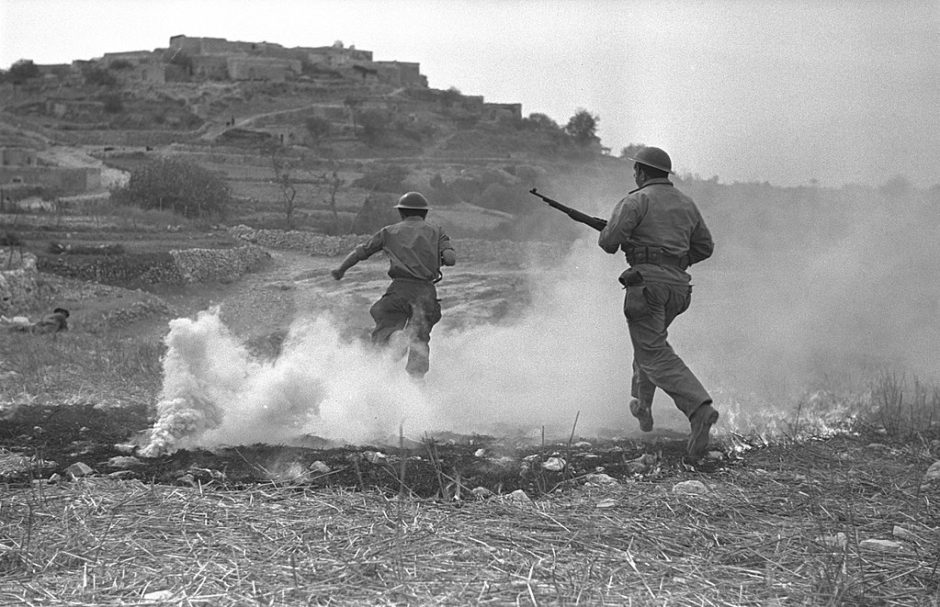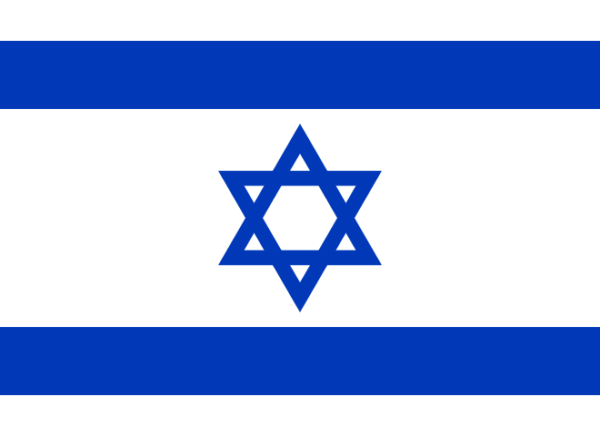
As Israel celebrated its 7oth anniversary on April 19 by the Hebrew calendar — the day the doomed but heroic Warsaw ghetto uprising erupted in 1943 — it grappled with a paradox. Never has Israel been as militarily strong, yet so insecure.
Israel is the only nuclear power in the Middle East, with a humming economy and the region’s strongest and most sophisticated armed forces. But since its birth on May 14, 1948, Israel has paid dearly for its independence and sovereignty, having fought a succession of wars and skirmishes during which it has lost 23,646 soldiers in combat and 3,1334 civilians in Arab terrorist attacks.
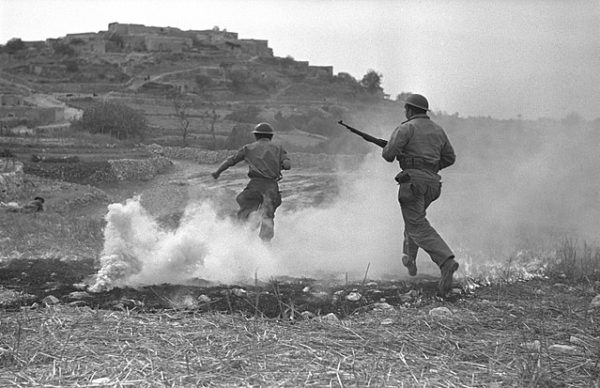
And while Israel is at peace with two of its most important Arab neighbors, Egypt and Jordan, it is still threatened by enemies that refuse to accept its existence and may yet go to war in an attempt to crush it. Israeli Defence Minister Avigdor Liberman raised this somber possibility the other day when he issued a warning that Israel may soon find itself fighting Syria, Iran and Hezbollah in multi-front conflict on the northern front, with Hamas, based in the Gaza Strip, joining in.
Tensions have been building for the past two months.
Israel has clashed with Syria, which has been embroiled in a civil war since 2011. Israel has also come to blows, for the first time, with Iran, Syria’s closest regional ally. As one observer has correctly pointed out, Israel’s confrontation with Iran began as a war of words after the 1979 Islamic revolution, turned into a war by proxy in the 1990s, and is now on the cusp of degenerating into a full-blown war.
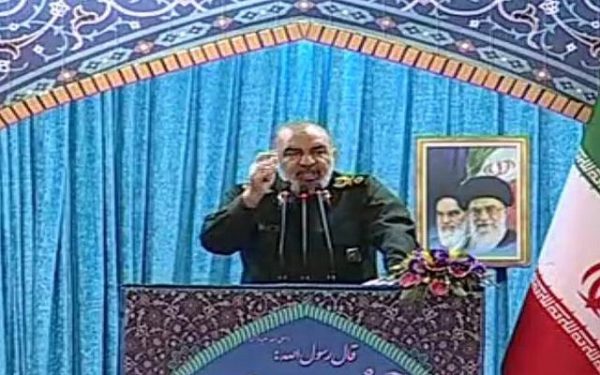
Iran, which regularly threatens Israel with annihilation, issued its latest verbal blast on April 20 when the deputy commander of the Iranian Revolutionary Guards, Hossein Salami, wrote on Twitter, “Israel: Don’t trust in your airbases; they’re within reach.”
And in a provocative speech in Tehran, he said that Israel lives “in the dragon’s mouth” and that both northern and western Israel are “in the range of our missiles.” He added, “Wherever you are in the occupied land, you’ll be under fire from us, from east and west. If there’s a war, the result will be your complete elimination. Your soldiers and civilians will flee, and you won’t survive. And you’ll have nowhere to run, except to fall into the sea.”
Before it signed peace treaties with Egypt in 1979 and Jordan in 1994, this is the kind of incendiary language that Israel often heard from the Arab world and the Palestinian national movement. Today, this fiery rhetoric is the stock-in-trade of Iran and its Lebanese and Palestinian allies, Hezbollah and Hamas, and of Islamic State.
Despite their threats, Israel was in an upbeat mood as its 70th anniversary approached.

“Israel’s strategic balance sheet is the best it’s been since the establishment of the country,” the chief of staff of the Israel Defence Forces, General Gadi Eisenkot, said in an interview. “We have a strong, powerful army with a great advantage over our enemies. I do not detect nowadays that any of our enemies wants to carry out a direct assault on the State of Israel.”
Eisenkot said that Israel enjoys an advantage in terms of intelligence, aerial, operational and informational superiority. “We are viewed as a very powerful state that can act with high precision.”
But as he well knows, Israel’s military superiority has not discouraged its legion of enemies from constantly launching attacks on it.
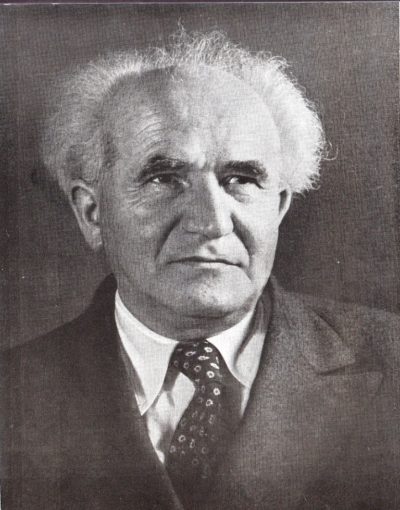
When David Ben-Gurion, Israel’s first prime minister, declared independence 70 years ago, just three years after the Auschwitz extermination camp was liberated, its chances of survival were less than certain. With a population of 650,000, some of whom were Holocaust survivors, the Jewish community in what had been Mandate Palestine seemed vulnerable and ready to be picked off by the Palestinians and their Arab allies.
The U.S. Central Intelligence Agency calculated that Israel would not survive a pan-Arab onslaught. One of Israel’s top commanders, Yigael Yadin, told Ben-Gurion that Israel had only a 50/50 chance to emerge victorious in the first Arab-Israeli war.
Israel won that protracted war, gaining more territory than it had been allotted under the 1947 Palestine partition plan, which the Palestinians and the Arab world had rejected. Israel’s victory left a bitter legacy among the 700,000 Palestinian Arabs who left voluntarily or were forced to leave following Israel’s declaration of statehood. To the Palestinians and their supporters, Israel had usurped Palestinian land and created the accompanying refugee problem.
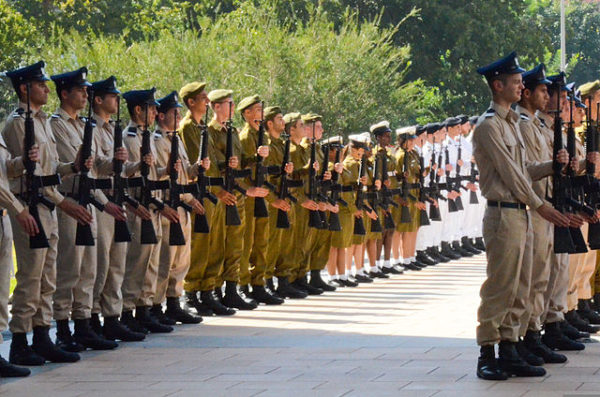
Seven decades on, the Palestinian issue still burns brightly, and Israel is still the world’s only country without internationally recognized borders, despite the fact that several Arab countries signed armistice agreements with the Jewish state after the 1948 war.
Israel’s occupation of the West Bank since the 1967 Six Day War, a defining event in its history, has divided the country, triggered Palestinian uprisings in 1987 and 2000, pushed Israel further to the right, left it open to accusations that it is a colonial settler state, and produced the boycott, divestment and sanctions movement, which has gained traction on university campuses in North America and Europe.
Israeli Prime Minister Benjamin Netanyahu endorsed a two-state solution in 2009, but peace talks between Israel and the Palestinian Authority collapsed in the spring of 2014. Since then and since Donald Trump’s election as U.S. president, Netanyahu has grown increasingly cool toward the prospect of Palestinian statehood. Instead, he has pressed ahead with establishing facts on the ground by expanding the network of Jewish settlements in the West Bank, even though he realizes that his policies are leading Israel down a fraught path to a binational state and the demise of the Zionist dream.
It’s clear that Netanyahu’s right-wing Likud Party — the major component in his coalition government — prefers conflict management to conflict resolution. This position does not sit well with several former directors of the Mossad, Israel’s external intelligence agency. Their views speak to the sharp divisions within Israeli society regarding the disposition of the West Bank.

“If the State of Israel doesn’t decide what it wants, in the end there will be a single state between the sea and the Jordan,” Tamir Pardo, the head of the Mossad from 2011 to 2015, told the the Israel daily Yedioth Ahronoth recently.
Danny Yatom, the director of the agency from 1996 to 1998, has said that Israel’s occupation of the West Bank will transform it into “either an apartheid state or a non-Jewish state. If we continue to rule the territories, I see that as an existential danger. A state of that kind isn’t the state that I fought for. There are some people who will say that we’ve done everything and that there isn’t a partner, but that isn’t true. There is a partner. Like it or not, the Palestinians and the people who represent them are the partners we need to engage with.”
Proponents of a two-state solution like Yatom are convinced that the status quo in the West Bank will imperil Israel’s status as a democratic Jewish state. At present, Israel’s population stands at 8.4 million, of whom two million are Muslims and Christians. Jews, in other words, comprise about 75 percent of Israel’s population. But given the higher Arab birthrate, Arabs will eventually outnumber Jews, presenting Israel with two unpalatable options: giving the Arabs under its control full voting rights, thereby pushing Israel toward a one-state solution, or denying them such rights and transforming Israel into an undemocratic apartheid state.
Jewish opponents of Palestinian statehood scoff at this scenario, contending that the numbers are inaccurate. They claim that three million Palestinians live in Israel, the West Bank and the Gaza Strip (from which Israel unilaterally withdraw in 2005), compared to 6.5 million Jews in Israel, the West Bank and the Golan Heights. In their opinion, Israel does not face a ticking demographic time bomb.
Last month, the Civil Administration — the Israeli army unit that coordinates Israel’s activities in the West Bank — upended this flimsy, self-serving argument, releasing figures to members of the Knesset indicating that the number of Jews and Arabs under Israel’s control between the Jordan River and the Mediterranean Sea has reached parity at 6.5 million for each side.
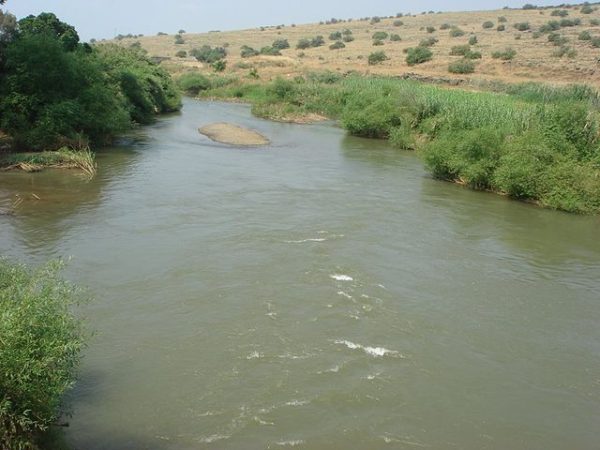
This was not exactly music to the ears of right-wing Israelis, but these bleak statistics confirmed the warnings of Israelis who fear that Israel’s occupation of the West Bank will undermine its foundations as a democratic Jewish state and lead to further chaos and bloodshed.
